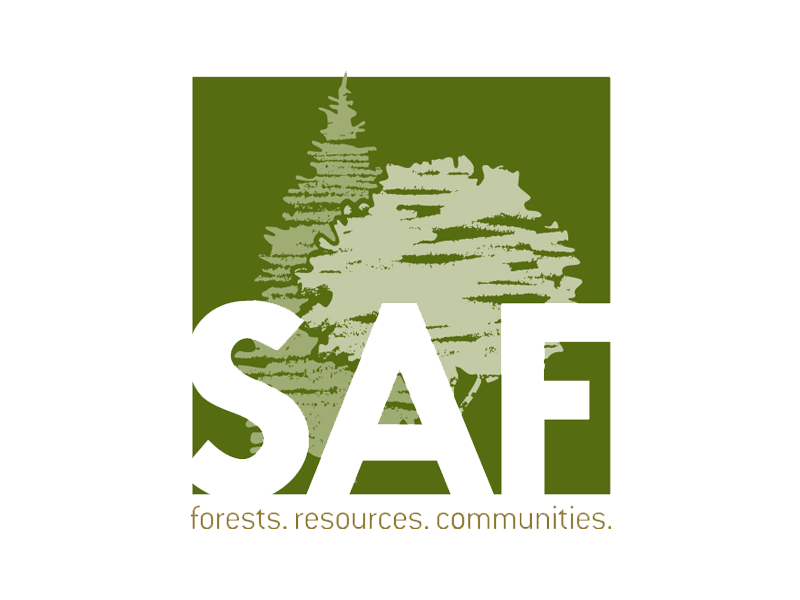matches /academics/et/forestry/forest-technology/accreditation-outcomes ... percision: 3 of
Graduate Data
Graduate Data from May 2019 through May 2023 (graduate classes of 2018–19 through 2022–23):
- Forest Technology has had 97 graduates, and a 97.3% placement rate.
- The Forest Technology graduation rate is 63%.
- Average starting salary as reported by graduates is $35,773.
| Academic Year | Full-time enrollment | Part-time enrollment | Graduates |
|---|---|---|---|
| 2022–23 | 47 | 7 | 25 |
| 2021–22 | 47 | 3 | 12 |
| 2020–21 | 45 | 2 | 25 |
| 2019–20 | 53 | 2 | 19 |
| 2018–19 | 42 | 2 | 19 |
Program Goals
Program Goals
A graduate of this major should be able to:- identify the function of tree parts for selected species of trees and shrubs as well as their scientific and common names, general uses, site characteristics, and geographic distribution.
- apply the fundamentals of plane surveying, including the use and care of surveying equipment, maps and map-making, and the theory of measurements.
- measure the volume and value of standing timber, logs, and lumber by scaling and grading said products according to industry standards.
- prepare a forestland management plan for a property using the concepts of multiple use and sustained yield forest management.
- demonstrate knowledge of the silvicultural treatments used to regulate stand composition, regenerate stands, increase growth rates, and improve timber quality.
- apply the basic theories, principles, and techniques used in timber harvesting and demonstrate the safe operation and maintenance of tools and equipment used to harvest a timber crop.
- describe the life history, food, and habitat requirement of the major game, non-game birds, and mammals of Pennsylvania.
- discern the concepts of plant variability and diversity in relation to distribution and control of various forest pests, diseases, and fire problems.
- demonstrate familiarity with the characteristics and structure of common wood species as well as principles of sawing logs into lumber, drying lumber, and marketing a variety of products created through these processes.
- apply computer skills including GIS/GPS technology and other forestry related software to field applications.
Mission Statement
To equip students for successful careers in Forest Technology through a comprehensive blend of hands-on experience and theoretical knowledge, guided by the Society of American Foresters (SAF) Standards and Code of Ethics.
SAF Code of Ethics
Preamble
Service to society is the cornerstone of any profession. The profession of forestry serves society by fostering stewardship of the world's forests. Because forests provide valuable resources and perform critical ecological functions, they are vital to the wellbeing of both society and the biosphere.
Members of SAF have a deep and enduring love for the land, and are inspired by the profession's historic traditions, such as Gifford Pinchot's utilitarianism and Aldo Leopold's ecological conscience. In their various roles as practitioners, teachers, researchers, advisers, and administrators, foresters seek to sustain and protect a variety of forest uses and attributes, such as aesthetic values, air and water quality, biodiversity, recreation, timber production, and wildlife habitat.
The purpose of this Code of Ethics is to protect and serve society by inspiring, guiding, and governing members in the conduct of their professional lives. Compliance with the code demonstrates members' respect for the land and their commitment to the long-term management of ecosystems, and ensures just and honorable professional and human relationships, mutual confidence and respect, and competent service to society.
On joining the SAF, members assume a special responsibility to the profession and to society by promising to uphold and abide by the following:
Principles and Pledges
- Foresters have a responsibility to manage land for both current and future generations. We pledge to practice and advocate management that will maintain the long-term capacity of the land to provide the variety of materials, uses, and values desired by landowners and society.
- Society must respect forest landowners' rights and correspondingly, landowners have a land stewardship responsibility to society. We pledge to practice and advocate forest management in accordance with landowner objectives and professional standards, and to advise landowners of the consequences of deviating from such standards.
- Sound science is the foundation of the forestry profession. We pledge to strive for continuous improvement of our methods and our personal knowledge and skills; to perform only those services for which we are qualified; and in the biological, physical, and social sciences to use the most appropriate data, methods, and technology.
- Public policy related to forests must be based on both scientific principles and societal values. We pledge to use our knowledge and skills to help formulate sound forest policies and laws; to challenge and correct untrue statements about forestry; and to foster dialogue among foresters, other professionals, landowners, and the public regarding forest policies.
- Honest and open communication, coupled with respect for information given in confidence, is essential to good service. We pledge to always present, to the best of our ability, accurate and complete information; to indicate on whose behalf any public statements are made; to fully disclose and resolve any existing or potential conflicts of interest; and to keep proprietary information confidential unless the appropriate person authorizes its disclosure.
- Professional and civic behavior must be based on honesty, fairness, good will, and respect for the law. We pledge to conduct ourselves in a civil and dignified manner; to respect the needs, contributions, and viewpoints of others; and to give due credit to others for their methods, ideas, or assistance.
matches /academics/et/forestry/forest-technology/accreditation-outcomes ... percision: 3 of

